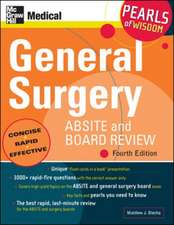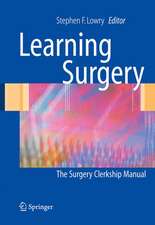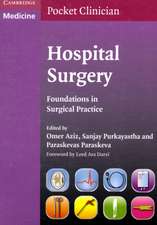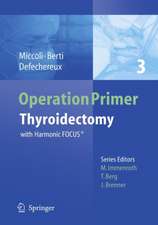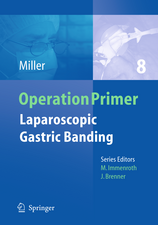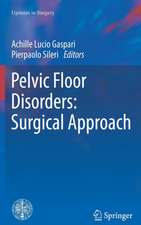Craniofacial Anomalies: Psychological Perspectives
Editat de Rebecca A. Eder Cuvânt înainte de J. L. Marshen Limba Engleză Paperback – 6 oct 2011
Preț: 717.73 lei
Preț vechi: 755.51 lei
-5% Nou
Puncte Express: 1077
Preț estimativ în valută:
137.37€ • 142.87$ • 115.12£
137.37€ • 142.87$ • 115.12£
Carte tipărită la comandă
Livrare economică 13-27 martie
Preluare comenzi: 021 569.72.76
Specificații
ISBN-13: 9781461275497
ISBN-10: 1461275490
Pagini: 332
Ilustrații: XXIII, 303 p.
Dimensiuni: 155 x 235 x 17 mm
Greutate: 0.47 kg
Ediția:Softcover reprint of the original 1st ed. 1995
Editura: Springer
Colecția Springer
Locul publicării:New York, NY, United States
ISBN-10: 1461275490
Pagini: 332
Ilustrații: XXIII, 303 p.
Dimensiuni: 155 x 235 x 17 mm
Greutate: 0.47 kg
Ediția:Softcover reprint of the original 1st ed. 1995
Editura: Springer
Colecția Springer
Locul publicării:New York, NY, United States
Public țintă
ResearchCuprins
1: Appearance, Expression, and Perception.- 1 A Description of Craniofacial Anomalies: The Mechanism and Rationale of Surgery.- 2 The Origins and Functions of Appearance-Based Stereotypes: Theoretical and Applied Implications.- 3 Beyond Beauty and After Affect: An Event Perception Approach to Perceiving Faces.- 4 Socioemotional Development in Children with Craniofacial Anomalies.- 2: Attachment and Parenting.- 5 Early Interaction of Infants with Craniofacial Anomalies.- 6 The Experience of Attachment in Infants with Disabilities.- 7 Implications of Attachment Theory for Infants and Preschoolers Who Require Hospitalization.- 3: Social Cognition, Self-Concept, and Social Interaction.- 8 Individual Differences in Young Children’s Self-Concepts: Implications for Children with Cleft Lip and Palate.- 9 Peer Rejection and Social Isolation in Childhood: A Conceptually Inspired Research Agenda for Children with Craniofacial Handicaps.- 10 Reactions to Craniofacial Disfigurement: Lessons from the Physical Attractiveness and Stigma Literatures.- 4: Current Research on Craniofacial Anomalies.- 11 Persons with Down Syndrome: Facial Characteristics, Self- and Other-Perception, and Social Acceptance.- 12 Social Psychological Model of Craniofacial Anomalies: Example of Cleft Lip and Palate.- 13 A Developmental Framework for Psychosocial Research on Young Children with Craniofacial Anomalies.

